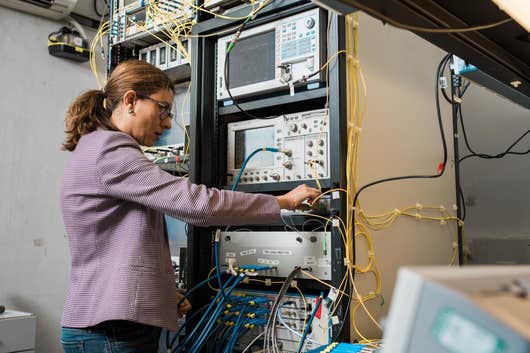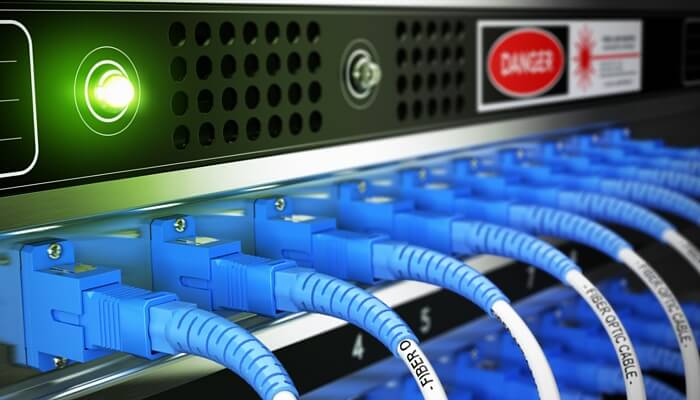The modern world is no stranger to breakthroughs. They’ve become the norm of our society. One such breakthrough came about in London recently. Scientists state that they have maxed out the speed of the internet by building something called the Ultra Broadband.
In simpler words, the fastest speed the internet could go to has been achieved. How fast is that speed? In theory, fast enough to download everything on Netflix in half a second.
This feat was accomplished by the UCL-led team of researchers. Amplifiers were the key to success here. They were used to boost the speed at which light carries digital data. To further improve performance, fiber-optic broadband was used.
Ultra-Broadband is 3 million times faster than home fibre internet
The speed achieved was 178 terabits per second. Therefore, the speed is 3 million times faster than any home connection in the UK.
The world record was made by sending data in a greater selection of colors. More than are commonly sent under optical-fibers. Taking such a measure allowed the bandwidth to expand. Thus, allowing the internet to run much faster.
The fact of the matter is as Dr. Galdino reported to the Standard. She truly did achieve the highest bandwidth via internet transmission. What are the social implications of such a thing? Dr. Galdino believes the faster the internet, the more productive the economy.

She believes her discovery could be the solution to rising internet traffic and influx of data. Instead of trying to cut down what is online why not rise up to meet the demands. Such a discovery could surely be the start of a new era in communications.
Since the inception of this idea, the world has been locked in a rat race. Each country wants to be the first to make ultra-broadband available to the public.
Also read: SpaceX Starlink Satellites – Internet for everyone?
Ultra Broadband will make transferring scientific data a breeze
Researchers at UCL argue strongly for ultra-broadband’s speed. They say it’s strong enough to take under an hour to download scientific data from the world’s first image of a black hole. Currently, Dr. Galdino is working on expanding this project, quite literally.
She plans on increasing the range as much as possible for ultra-broadband. Large chunks of data being sent over huge distances as lightning-fast speeds are the future.
For those of you interested in reading up more on this topic. The project’s results and analysis are published in the journal IEEE Photonics Technology Letter. The project was a collaborative effort. Telecoms firms Xtera and KDDI Research were both involved.
In Conclusion
In my opinion, this truly is a wonder. Everyday concerns often revolve around the internet is too slow. It is refreshing to see Dr. Gildano tackle the issue with a new approach. It could be made cost-effective and expanded for greater range. Doing so would make it a commercial success and warrant further research in the area.
What drawbacks might come with such speeds of the internet are hard to say. For now, it all looks rather sunshine and rainbows. One can only hope that reality stays the same.


